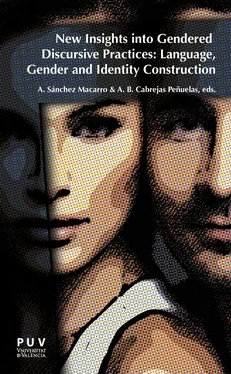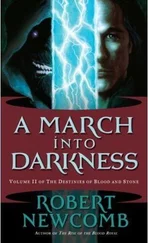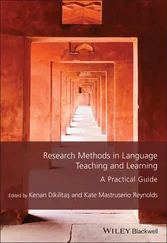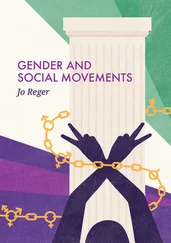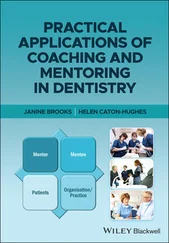CARMEN MAÍZ ARÉVALOobtained her PhD in English Linguistics in 2001, being an English teacher since 1995. Currently Dr. Maíz-Arévalo holds the position of full time lecturer at the Universidad Complutense, where she is teaching Pragmatics, English and Translation, among other things. Her fields of interest are mainly speech act theory, politeness, gender and language and applied linguistics. She has published several articles on these issues and taken part in numerous congresses, both national and international. Besides her research and teaching activities, Carmen Maíz-Arévalo is also the secretary of the Revista de Estudios Ingleses , published yearly by the Universidad Complutense de Madrid.
SILVIA MOLINA PLAZA(PhD) is Associate Professor at the Universidad Politécnica de Madrid. Her research interests are Discourse Analysis, Pragmatics, Translation and ESP. She serves a reviewer for Atlantis , International Journal of English Studies and International Journal of English Linguistics among other journals. Three of her latest publications are: 1) “Collocations and the translation of news: An English-Spanish electronic dictionary of multi-word combinations as a translation tool in Perspectives”, Studies in Translatology , Volume 19, Issue 2, 2011, pages 135-152, Dr de Gregorio (2011); 2) “Non-verbal markers of modality and evidentiality in MarENG”, published in Revista de Lenguas para Fines Específicos , ISSN: 1133-1127, 45-70, (2012) and 3) Alonso, Molina & Porto, “Multimodal Digital Storytelling: Integrating information, emotion and social cognition”. Pinar Sanz, Maria Jesus (ed.) [RCL 11:2]. Review of Cognitive Linguistics , 2013.
ROSA MUÑOZ LUNAreceived her BA on English Language and Literature (2006) from the University of Málaga (Spain). She specialised in English linguistics finishing her MA on English Applied Linguistics (2008) from the same university. Muñoz-Luna obtained BAs in Education and Psychopedagogy from Salamanca Pontifical University (Spain), and MEd in TESOL from Exeter University (United Kingdom). After her academic formation years, she finished her European PhD on English Linguistics in 2012 at Málaga University, where she is currently working at the English Department as an interim teacher. Her research interests include English for specific purposes, motivation in language learning, phonology teaching and writing. She has published several papers in international journals on English academic writing and other aspects within applied linguistics.
JOANNE NEFF-VAN AERTSELAERis professor of English Language and Linguistics at the Universidad Complutense, Madrid. Her areas of investigation include Critical Discourse Analysis, Feminism, Sociolinguistics, Academic Writing linked to L2 acquisition. She has published widely in feminism and critical discourse analysis, including co-editing a critical discourse analysis volume: Pütz, M., Neff-van Aertselaer, J. and van Dijk, T. (eds.). 2004. Communicating Ideologies: Multidisciplinary Perspectives on Language, Discourse and Social Practice . Berne/Frankfurt/New York/Paris: Peter Lang.
MARÍA DEL MAR RIVAS-CARMONAis a Senior Lecturer at the University of Cordoba. She has previously taught at Harvard University and the University of Seville. Her classes focus on Discourse and Pragmatics and her research interests include discourse analysis, gender studies and literary translation. In addition, she has coordinated and participated in over a dozen research and teaching innovation projects on these matters, and she has supervised various doctoral theses and numerous master’s theses on discourse, gender studies, language teaching and specialized translation. As regards her publications, she has published several books and numerous articles on women writers, pragmatics and translation. Standing out among her recent publications are two international co-editions on the cultural aspects of literary translation, published by Peter Lang and Narr Verlag.
CARMEN SANTAMARÍA GARCÍA, European PhD in Linguistics from Complutense University, Madrid, is a tenured Professor of Linguistics at Alcalá University, Madrid, Spain. Her teaching includes pragmatics, discourse analysis and methodology of the English language at both undergraduate and postgraduate levels. These are also her areas of research together with c orpus linguistics and computer-mediated communication . She has participated in several research projects such as “Functions of Evaluative Language in Different Discourse Types” (FUNDETT) coordinated at UNED, Madrid (2010-2013) “Small heroes in trouble – Boys searching for their identity” (2006-2009) and “Education and Gender” (EDGE) (2011-2014), both coordinated at EHSAL, Brussels. She has more than fifty articles published in national and international academic journals and books. In her most recent publications she focuses on the combination of corpus linguistics together with conversation and discourse analysis and on the use of evaluative language in social networking sites.
Mª SANDRA VÁZQUEZ HERMOSILLAis a teacher of English at the Official School of Languages. For the past few years she has also worked at the University of Valencia where she has taken part in different research projects related to Language and Gender within the research group GENTEXT. Her research interests and her published works are centred upon gender and language issues, the phenomenon of (indirect) linguistic sexism and its manifestations in computer-mediated communication.
GORA ZARAGOZA NINETis a lecturer at the University of Valencia. For the past few years she has published works which deal with the translation of 20th Century women novelists into Spanish. She has also translated and annotated a collection of short stories by Winifred Holtby, who was censored during the Spanish dictatorship. Beyond Gender and Translation she also works on Gender and Language together with the GENTEXT Research group at the University of Valencia and has also reflected on her English teaching practice and the implementation of ICT in the class (ANGLOTIC project).
Prologue
This volume of the English in the World series is a welcome addition to language and gender studies. The chapters in this volume demonstrate the broadening range of vibrant and insightful research in the field. The interesting and exciting data presented in these chapters is a testament to the degree to which language use is permeated by gender across contexts. The papers here examine language data from magazines, advertising, social media, blogs, classroom interactions, and engineering journals. The authors approach this impressive range of data with an equally impressive range of methodologies, including corpus linguistics, Critical Discourse Analysis, contrastive analysis, and conversation analysis. The authors of this volume also break new ground with papers that challenge a number of commonly presumed divisions within the field.
Since Lakoff’s pioneering work, the study of language and gender has typically been divided between studies of representation (sexist language, discourse about women, etc.) and studies of language use (gendered differences in language use, gender in interaction, etc). The papers in the volume suggest that representation and language use are intimately related. In data drawn from a range of sources, these papers map the ways in which gendered representations are also forms of interaction. The research presented here demonstrates that individual construction of gender identity cannot be divorced from the constructions of gender that circulate through public discourse and the media. Similarly, the papers in this volume challenge other assumptions in the field such as divisions between personal versus professional identities, the separation between public and private discourse, and the distinction between written and spoken discourse. This volume thus suggests new perspectives that integrate the various strands of language and gender research.
Читать дальше
